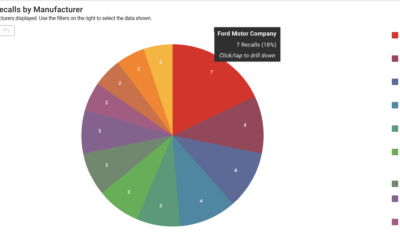The internet is full of guides and blog posts titled “first time car buyer tips.” A quick google search yields thousands of articles with “pro tips” for how a first time car shopper should approach the car buying process. Sadly, many of those articles are full of fluff and BS.
For many, buying a car is either the largest, or second largest purchase of their life. Regardless of if you’ve bought a dozen cars during your lifetime, or if this is your first time going through the process, it’s very intimidating. That’s why we filmed the video above (just click play to enjoy that version instead of reading), and wrote this guide, to help make sure you get the fundamentals of the car buying process done right and worry free.
We also offer Deal School, our 100% free e-course that will teach you how to go through the entire car buying process (or become a car salesperson, whichever you prefer), so be sure to check that out as well. In this article however, we’re going to focus our attention on 4 first time car buyer tips that you need to know before you go to a dealership.
Without further ado, let’s dive in!
Car buyer tip #1: Know your budget
This assumption may not hold true for everyone that reads this guide, but for 99% of you, it’s likely you are not a cash buyer. If this is your first time purchasing a car, it’s likely you’re going to finance your purchase, which makes sense, how many people have tens of thousands of dollars sitting around to plunk down on a depreciating asset?
It’s important to understand what your budget is for your first car (and for all your future vehicle purchases for that matter), and to factor in all of the costs associated with owning an automobile. For example, you will most certainly encounter salespeople that will ask you, “What’s your monthly payment goal?” And you’ll reply, “$400.”
Read our complete guide on how much to spend on a car: How Much Should I Spend on a Car?
Does that $400 include insurance, gas, maintenance costs, etc? Or are you thinking of that $400 as your budget for only the loan payment each month?
My recommendation is to set a monthly budget goal that is reflective of the total cost of ownership (including insurance, and gas). Factoring maintenance expenses can be difficult because that is entirely dependent on how frequently you drive the car.
{Bonus tip, don’t negotiate on the monthly payment. Instead focus on the OTD price. Link to calculator/blog post.}
Car buyer tip #2: Know your credit score
Did you know that annually you have free access to your credit report from each of the three major credit bureaus (Experian, TransUnion, and Equifax)? Most people aren’t aware that the federal government provides access to each report (for free) at www.annualcreditreport.com.
Before you buy your first car, be sure to know your credit score. Why? Because car dealers make a lot of money when you don’t! If you’re a first time car buyer, it’s likely you have a “thin file” (not a lot of credit history), and when a dealership runs your credit to get loan options on your behalf, don’t be surprised if they come back with outrageously high interest rates.
However, if you knew your credit score beforehand, you could be proactive and secure outside financing through a local bank or credit union and not be reliant on the high interest rate options the dealer finds for you.
It’s also important to be aware of manufacturer incentives for recent college graduates. A lot of first time car buyers are recent graduates, and car manufacturers create special incentives to appeal to that demographic. Many recent college grad programs include special financing through the manufacturer’s captive lender that allow you access to interest rates you could not have obtained elsewhere.
Familiarize yourself with these programs (and your credit score) before blindly accepting the interest rate the dealer secures on your behalf. This investment of time will certainly save you thousands of dollars over the lifetime of your loan.
Car buyer tip #3: Co-signers can help
If you have no credit history, a co-signer can help you get approved for a loan. If you have bad credit, a co-signer won’t make up for that. In the example we used above, when you have a “thin file,” a co-signer will help secure a loan with a more reasonable interest rate.
A lot of recent college graduate programs require a co-signer.
Co-signers are typically family members, such as parents, grandparents, aunts, or uncles. It’s important to understand that the co-signer is obligated to make the loan payments if you don’t. By co-signing on your loan, their purchasing power is impacted. The co-signed loan shows as an obligation for them on their credit applications in the future.
What does this mean for you? Make sure you make your car payments! The last thing you want to do is negatively impact the credit score of your family members. If they co-sign for you, they’re risking their reputation on your ability to make your payments. Please don’t take that lightly!
Car buyer tip #4: Do your homework
If you’re a recent college graduate, the concept of doing your homework should still be second nature to you. But what do I mean by “do your homework” in this context?
Focus on two things:
- Study the reliability, cost of maintenance, and over all five year cost of ownership about each vehicle you’re interested in purchasing. Edmunds has good resources for that: https://www.edmunds.com/tco.html
- Get a sense for the expected depreciation of the vehicle over the lifetime of ownership. CarEdge has good resources for that: https://CarEdge.com/depreciation
If you follow these 4 first time car buyer tips and complete Deal School, you’ll be in a great position to purchase your first car. Buying a car, truck, or SUV doesn’t have to be as daunting as it once seemed. Just remember, knowledge is power!













0 Comments